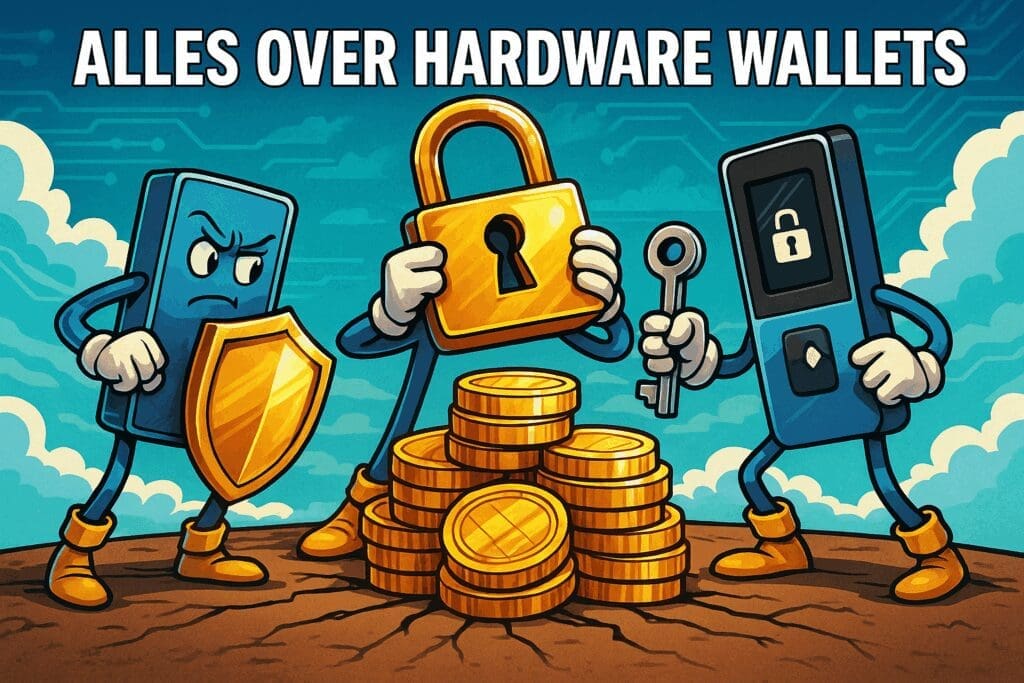At Bitcoinhelper, we believe it’s essential that you can store your cryptocurrencies safely. That’s why we’ve taken a close look at the different storage options and organized them clearly into three main categories: hardware wallets, software wallets, and online wallets. Each option comes with its own features, benefits, and level of security.
Looking for the most secure way to store your Bitcoin or other crypto? You’ve come to the right place. We explain the differences between these wallet types in simple terms and provide the information you need to make a smart, well-informed choice.
In the world of digital assets, security comes first. That’s why we’re here to help you find a wallet that suits your preferences, ease of use, and risk tolerance. Learn the pros and cons of each storage method and make sure your crypto stays protected—today and in the future.
Three Types of Crypto Wallets: Which One Is Right for You?
If you’re planning to buy Bitcoin or other cryptocurrencies, one of the first questions you should ask yourself is: how will I safely store my digital coins?
Unlike a traditional bank account, in the crypto world you use a wallet with a unique wallet address. This digital wallet ensures that you maintain control over your assets—but only if you choose the right one.
There are roughly three main types of wallets you can use, each with its own benefits, risks, and use cases:
🔒 Hardware Wallets – The Vault for Your Crypto
Hardware wallets are physical devices specifically designed to store your cryptocurrencies offline. Because they’re disconnected from the internet, they’re considered one of the most secure storage methods. Your private keys are generated and stored locally on the device, keeping them out of reach from hackers.
These wallets are ideal for long-term storage of larger amounts. Popular models include the Ledger Nano S, Ledger Nano X, and Trezor.
👉 Learn more about Hardware Wallets →
🌐 Online Wallets – Fast and Accessible
Online wallets, also known as web wallets, are accessible via your browser or app and are often offered by exchanges such as Coinbase, Binance, or Blockchain.com.
They’re convenient for daily use and quick transactions, but less secure than hardware wallets due to their constant internet connection. Best used for smaller amounts, and always with extra protection such as two-factor authentication (2FA).
👉 Learn more about Online Wallets →
💻 Software Wallets – Flexibility on Your Own Device
Software wallets are applications you install on your computer, smartphone, or tablet. They offer a good balance between security and convenience but depend on how well your device is protected.
Only download them from official sources and make sure your system is free of malware. Trusted software wallets include Exodus, Electrum, and Atomic Wallet.
👉 Learn more about Software Wallets →
Recente Wallet Posts
MetaMask Review: Your Gateway to Crypto and Web3
The Rise of MetaMask The cryptocurrency world is evolving rapidly, and MetaMask has become one of the most recognized names...






